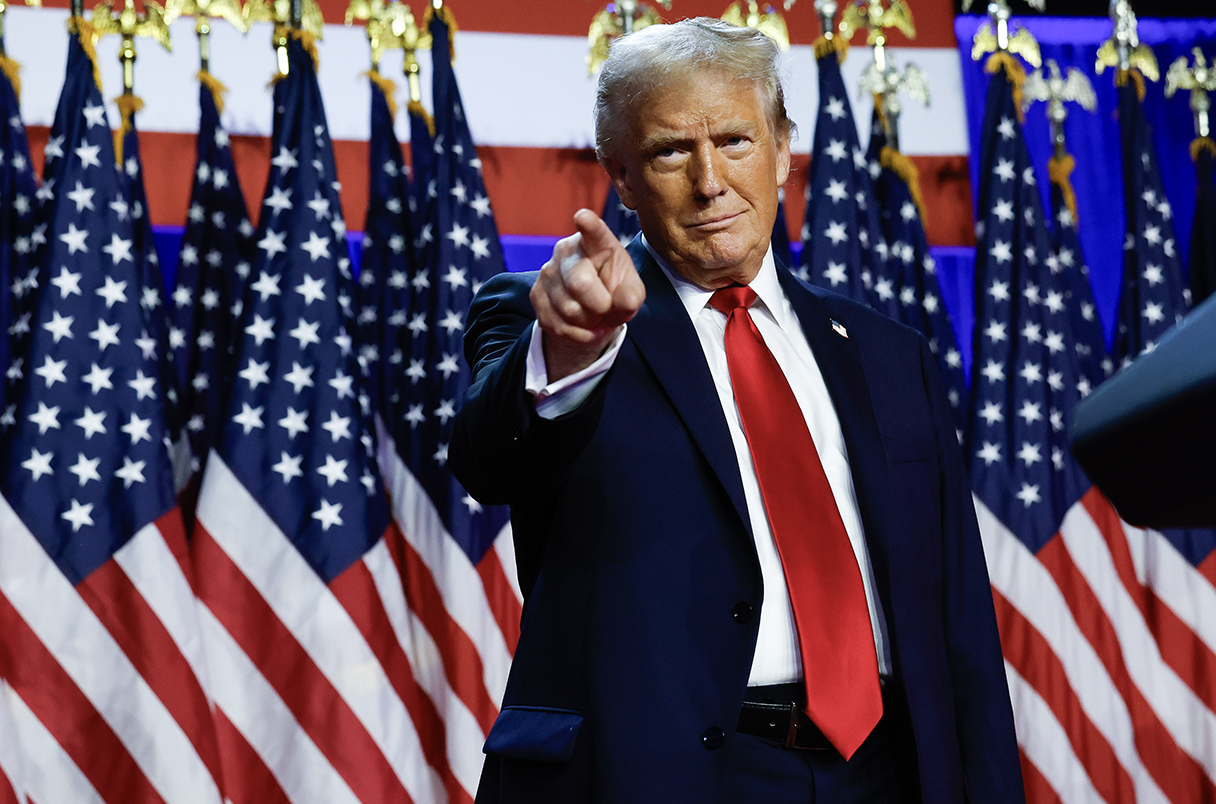Donald Trump Signs “One Big Beautiful Bill”: How It Can Reshape the Crypto Market
05.07.2025 9:56 2 min. read Kosta Gushterov
U.S. President Donald Trump has officially signed his sweeping policy bill into law, enacting one of the most consequential pieces of legislation of his presidency.
The 870-page package, passed by a razor-thin margin in Congress, was signed during a high-profile ceremony at the White House ahead of Independence Day celebrations.
The signing event featured a flyover of B-2 bombers and F-22 fighter jets, the same aircraft used in recent strikes on Iranian nuclear facilities. Trump was joined by Republican lawmakers, military pilots, and top aides as he hailed the bill as a turning point for the American economy and national security.
“This will unleash a new era of American prosperity and strength,” Trump declared from the South Lawn balcony, brushing aside concerns from Democrats and dissenting Republicans who warned about rising debt and deep cuts to social programs. Despite those objections, Trump said the bill delivers on core promises made to American workers, families, and veterans.
The legislation includes:
- An extension of Trump-era 2017 tax cuts
- New tax breaks for tips, overtime pay, and Social Security income
- A $150 billion increase in defense spending
- $100 billion allocated to ICE for immigration enforcement
- Steep cuts to Medicaid and low-income assistance programs
- Rollbacks of clean energy tax credits introduced during the Biden administration
Trump also praised the bill for what he called the “largest spending cut ever passed” that “nobody will even notice,” referring to reductions in food assistance and healthcare subsidies. The president emphasized that the bill represents a new standard in “America First” fiscal policy, combining military might, border control, and tax relief into a single legislative framework.
How the Bill Could Affect the Crypto Market
Trump’s economic package could indirectly benefit the crypto industry by increasing disposable income through tax exemptions and overtime relief. If consumer spending rises, interest in alternative assets like Bitcoin may follow. Additionally, the bill’s sharp boost to defense and border security spending, paired with reduced regulatory focus on green finance, signals a pro-business shift that may ease pressure on crypto firms.
However, the surge in federal debt and social program cuts could trigger public backlash and market instability, both of which historically correlate with increased crypto demand as a hedge. The bill’s political divisiveness may further fuel uncertainty around fiscal policy, prompting institutional and retail investors to reconsider Bitcoin as a store of value in an evolving economic climate.
While the bill isn’t crypto-specific, its broader economic ripple effects could shape sentiment and liquidity across digital asset markets in the coming months.
-
1
Gold Glides Toward New Peaks as Middle-East Strife Lifts Safe-Haven Demand
15.06.2025 10:00 2 min. read -
2
Bybit Steps Into DeFi With Solana-Based Platform
16.06.2025 17:00 1 min. read -
3
ARK Invest Takes Early Profits After Circle’s Skyrocketing IPO
18.06.2025 9:00 1 min. read -
4
Ripple’s Stablecoin Gains Global Reach Through Alchemy Pay Integration
18.06.2025 8:00 1 min. read -
5
FSB Flags Mounting Crypto Risks as Stablecoins Tighten Grip on Finance
13.06.2025 11:00 2 min. read
Weekly Recap: Key Shifts and Milestones Across the Crypto Ecosystem
The first week of July brought notable advancements in crypto infrastructure, governance, and trading.
EU Risks Falling Behind in Digital Finance, Warns Former ECB Board Member
Europe’s reluctance to embrace stablecoins and blockchain technology could erode its monetary sovereignty and marginalize the euro in the next phase of global finance, according to former European Central Bank board member Lorenzo Bini Smaghi.
Toncoin Launches UAE Golden Visa Program Through $100,000 Staking Offer
Toncoin (TON) has unveiled an exclusive partnership with the United Arab Emirates (UAE) to offer users a path to the coveted 10-year UAE Golden Visa—through crypto staking.
White House Advisor Points Out What Could Push Crypto Market to $20 trillion
Bo Hines, the U.S. President’s Chief Advisor on Digital Assets, believes that upcoming stablecoin legislation could catapult the digital asset market to unprecedented heights. In a recent statement,
-
1
Gold Glides Toward New Peaks as Middle-East Strife Lifts Safe-Haven Demand
15.06.2025 10:00 2 min. read -
2
Bybit Steps Into DeFi With Solana-Based Platform
16.06.2025 17:00 1 min. read -
3
ARK Invest Takes Early Profits After Circle’s Skyrocketing IPO
18.06.2025 9:00 1 min. read -
4
Ripple’s Stablecoin Gains Global Reach Through Alchemy Pay Integration
18.06.2025 8:00 1 min. read -
5
FSB Flags Mounting Crypto Risks as Stablecoins Tighten Grip on Finance
13.06.2025 11:00 2 min. read


